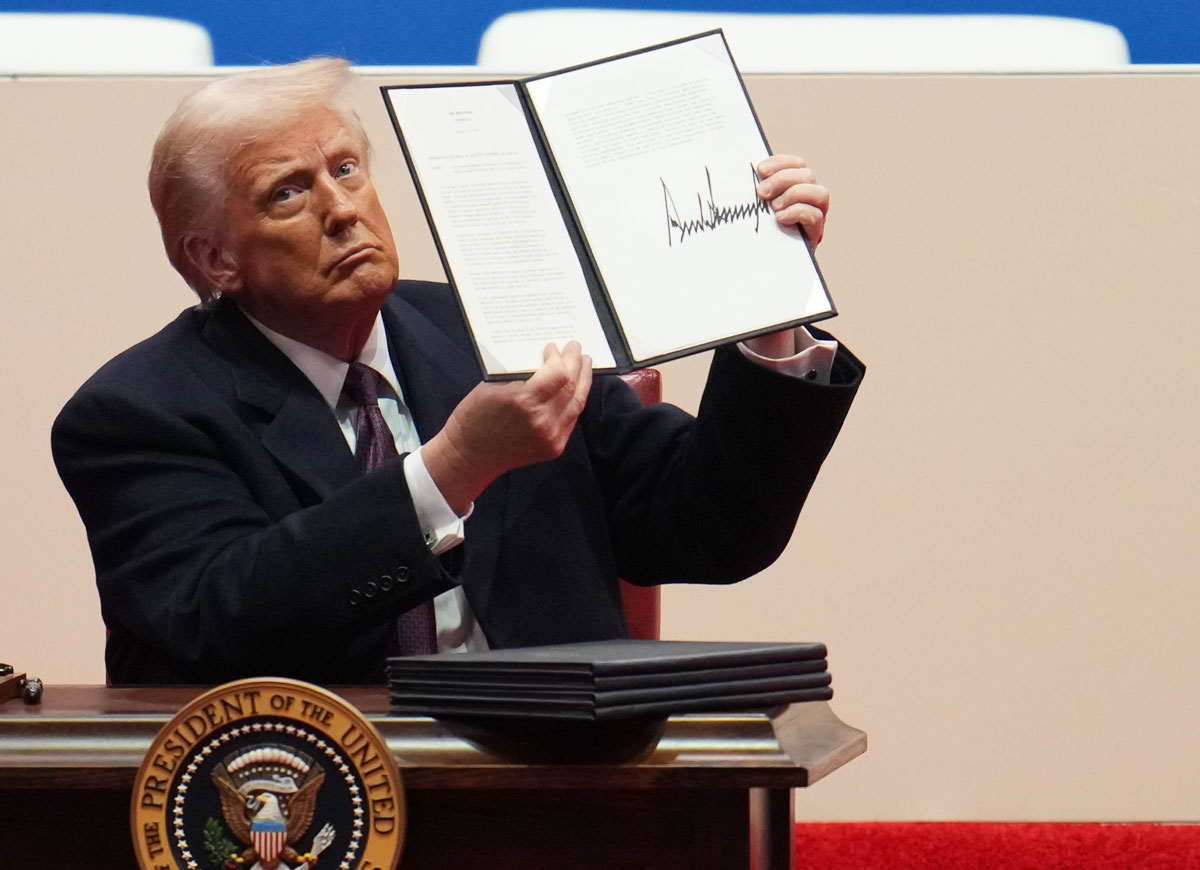Trump Imposes Travel Ban & Entry Restrictions On 19 Countries After Colorado Terror Attack Of Jewish Group
President Donald Trump announced that, starting June 9, citizens of 12 countries would be banned from visiting the United States, while also imposing heightened restrictions on visitors from seven other countries.
The ban would deny visitors from Afghanistan, Myanmar, Chad, the Republic of Congo, Equatorial Guinea, Eritrea, Haiti, Iran, Libya, Somalia, Sudan and Yemen from entering the United States. Additionally, visitors from Burundi, Cuba, Laos, Sierra Leone, Togo, Turkmenistan and Venezuela face intensified restrictions.
Trump mentioned in a video posted to social media that more countries could be added as “threats emerge around the world.”
“We cannot have open migration from any country where we cannot safely and reliably vet and screen,” said Trump.
Subscribe to our free weekly newsletter!
A week of political news in your in-box.
We find the news you need to know, so you don't have to.
The new travel ban is geared toward combating visitors who overstay their visas, which has recently become a national topic of conversation following the recent terror attack in Boulder, Colorado.
The main suspect in the attack, Mohamed Sabry Soliman, is a native of Egypt who overstayed a tourist visa, according to the Department of Homeland Security.
On Wednesday, a federal judge in Colorado blocked the Trump Administration from deporting Soliman’s wife and children, who are currently being held in custody by Immigration and Customs Enforcement (ICE).
The travel ban is part of a continued effort by Trump to restrict entries from countries with adversarial relations with the United States.
In an executive order from Trump’s first day in office, he ordered the Departments of State and Homeland Security, along with the Director of National Intelligence, to create a report on nations with “hostile attitudes” towards the United States, to determine whether entries from certain countries pose a threat to national security.
During his first term, he issued an executive order in 2017 banning citizens from Iraq, Syria, Iran, Sudan, Libya, Somalia and Yemen from visiting the United States. The order became known as the “Muslim ban” and was challenged for being anti-Muslim.
Trump defended the 2017 travel ban by claiming it was in the interest of national security. The Supreme Court upheld the “Muslim ban” in 2018.
Get the most-revealing celebrity conversations with the uInterview podcast!






Leave a comment